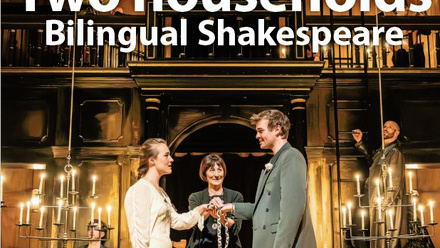From coexistence to collaboration and co-creation
Raisa McNab celebrates five year of ITI and the ATC working together.
This year, it is five years since the ITI and the ATC, the Association of Translation Companies, signed a Memorandum of Understanding to establish a formal foundation for collaboration. It was an unremarkable small piece of paper, but in the years that followed, it has transformed the two associations’ relationship from coexistence to close collaboration and co-creation of resources and guidance that has made a real difference to members
In a very, very rapidly developing and changing language services landscape, in a country where political and economic realities are changing equally fast, collaboration between professional associations is not just a nice-to-have but a necessary strategy for facing challenges as a whole sector whose stakeholders depend on each other for growth, business and development.For the ATC and the ITI, the MoU has given an opportunity to generate and share knowledge, resources, and best practices. To celebrate our five-year MoU anniversary, I want to share with you some of the highlights and successes from our journey so far.
Demonstrating the value of our memorandum
Sharing knowledge and co-creating resources makes us stronger together. Here are some of the things that our MoU has shown us.
In 2020, we faced down unprecedented business challenges when it became clear that in its haste to bake an ‘oven-ready’ Brexit deal for goods moving across borders, the UK Government had paid little attention to cross-border trade in services. Within the space of a few months, we pooled industry insights and resources to create a comprehensive support package for members, complete with guidance on cross-border VAT for language services, business travel, immigration, marketing, and data protection, tailored to the needs of language service provider freelancers and companies. Co-branded ATC and ITI, our Post-Brexit Guide for Language Service Providers was the only piece of guidance addressing the challenges our global sector was facing when transitioning UK out of the EU.
Best practices help enhance the reputation and credibility of our sector as a whole. In 2021-22, we explored best practices and standardisation around legal translation. Insights from members of both the ITI and the ATC contributed to a collaborative MA dissertation focusing on the potential value of the newly-published ISO standard 20771 on legal translation, specifically for the UK’s unregulated legal translation market.
Awarded Best Student Research at the 2022 ITI Awards, Karen Curtis’ work was a hugely important, meaningful look into the application and implementation of new international standards in the UK landscape. Building on the success of the ITI’s ISO 17100 qualification badge for membership, our joint work on legal translation standards cemented our shared dedication to best practices in a way that makes sense to our respective memberships.
Joint advocacy helps us scale shared barriers. In 2023, we took the first meaningful steps in shared advocacy, working towards harmonising practices around the certification of translations for official purposes, in close collaboration with the Chartered Institute of Linguists.
Today, all three organisations acknowledge and endorse each other’s certification practices, and have voiced their commitment to work together to further harmonise practices, and to continue joint advocacy towards the diverse authorities receiving certified translations in the UK. This on-going work continues to give strength to our collective voice that is more powerful and persuasive than our individual voices alone.
Doing things together makes a real difference. In 2022, we formed a language support task force with other language service associations and organisations to respond to the rapidly developing need for Ukrainian/English language support in the UK. The most powerful way to help people in a crisis is to provide support and information in their own language – but the challenge that authorities, NGOs and aid organisations often face is that access to and funding for professional language support can be difficult to put in place in a rapidly developing crisis situation. This work continued with the development of dedicated crisis support resources shared widely across UK and Europe.
Collaboration and co-creation beat coexistence any day of the week. Through open, constructive conversation we acknowledge that our priorities and objectives will many times differ. At the same time, we also recognise that where our aims and values do converge, we can work together to build a more resilient, sustainable ecosystem for the language services industry.
Many of the ITI’s Corporate Members are also members of the ATC, and this synergy further helps us forge closer ties, as we did at the ATC EUATC Ethical Business Summit in September 2023, written up in the Jan/Feb 2024 edition of the ITI Bulletin.
The ATC-ITI Memorandum of Understanding and our subsequent collaborations and co-creations have provided a blueprint for successful collaboration and co-creation activities within the UK’s language service associations.
As I am writing, I also want to take the opportunity to celebrate a new collaboration – a Memorandum of Understanding between the ATC and Cymdeithas Cyfieithwyr Cymru (CCC – the association of Welsh language translators and interpreters). With this MoU, we expand our collaborative reach, and signal our desire to work together with the CCC and its members to raise the profile of translation and interpreting, and to promote standards and best practices.
It may be a cliché, but as the UK’s language services sector, together we really are stronger, and smarter.
A version of this article first appeared in the March-April edition of the ITI Bulletin.






